BMW 2 Series vs Hyundai i10 - Differences and prices compared
Compare performance (530 HP vs 90 HP), boot space and price (39200 £ vs 14600 £ ) at a glance. Find out which car is the better choice for you – BMW 2 Series or Hyundai i10?
Costs and Efficiency:
Price and efficiency are often the first things buyers look at. Here it becomes clear which model has the long-term edge – whether at the pump, the plug, or in purchase price.
Hyundai i10 has a clearly advantage in terms of price – it starts at 14600 £ , while the BMW 2 Series costs 39200 £ . That’s a price difference of around 24609 £.
Both cars consume an average of 4.90 L per 100 km – no difference here.
Engine and Performance:
Under the bonnet, it becomes clear which model is tuned for sportiness and which one takes the lead when you hit the accelerator.
When it comes to engine power, the BMW 2 Series has a convincingly edge – offering 530 HP compared to 90 HP. That’s roughly 440 HP more horsepower.
In acceleration from 0 to 100 km/h, the BMW 2 Series is clearly quicker – completing the sprint in 3.80 s, while the Hyundai i10 takes 11.40 s. That’s about 7.60 s faster.
In terms of top speed, the BMW 2 Series performs distinct better – reaching 250 km/h, while the Hyundai i10 tops out at 175 km/h. The difference is around 75 km/h.
There’s also a difference in torque: BMW 2 Series pulls clearly stronger with 650 Nm compared to 172 Nm. That’s about 478 Nm difference.
Space and Everyday Use:
Beyond pure performance, interior space and usability matter most in daily life. This is where you see which car is more practical and versatile.
Seats: Hyundai i10 offers a bit more seating capacity – 5 vs 4.
In curb weight, Hyundai i10 is significantly lighter – 996 kg compared to 1560 kg. The difference is around 564 kg.
In terms of boot space, the BMW 2 Series offers evident more room – 390 L compared to 252 L. That’s a difference of about 138 L.
When it comes to payload, Hyundai i10 slight takes the win – 423 kg compared to 400 kg. That’s a difference of about 23 kg.
Who wins the race in the data check?
The BMW 2 Series holds a decisive overall lead in the objective data comparison.
This result only shows which model scores more points on paper – not which of the two cars feels right for you.
Costs and Consumption
View detailed analysis
Engine and Performance
View detailed analysis
Dimensions and Body
View detailed analysis
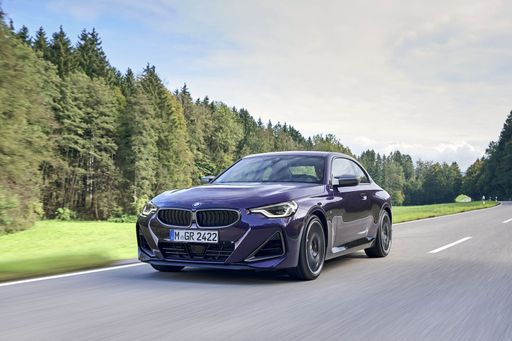
BMW 2 Series
BMW 2 Series
The BMW 2 Series feels like a pocket rocket in smart clothes, delivering sharp handling and a premium cabin that turns everyday errands into something worth looking forward to. For buyers who crave a compact car with real driving character and a dash of German confidence, it’s a spirited choice that never takes itself too seriously.
details
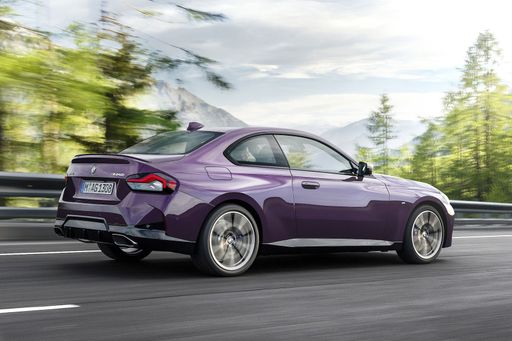
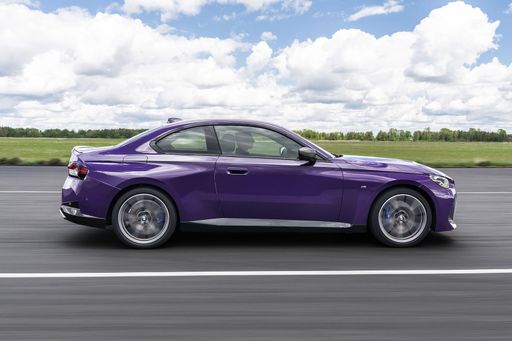
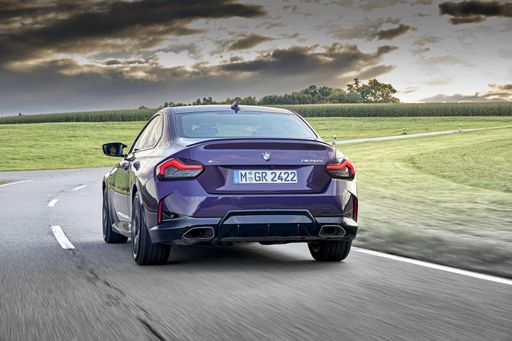

Hyundai i10
The Hyundai i10 is a cheeky city car that squeezes big-car confidence into a pocket-friendly package, carving through tight streets with surprising composure and sensible practicality. For buyers after low fuss, sensible equipment and wallet-friendly running costs, it's a smart, no-nonsense pick that makes sense whether you're a first-time driver or need a reliable second car.
details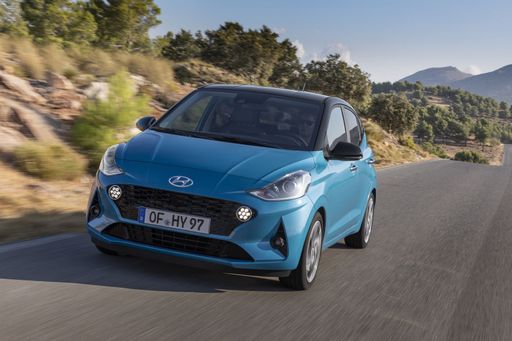
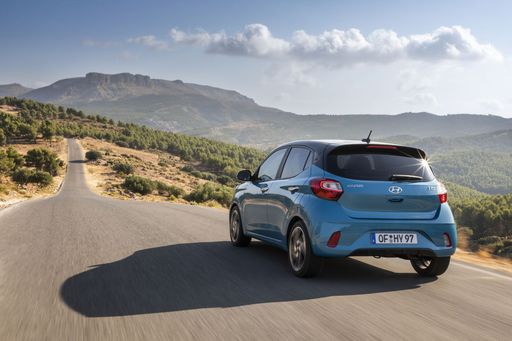
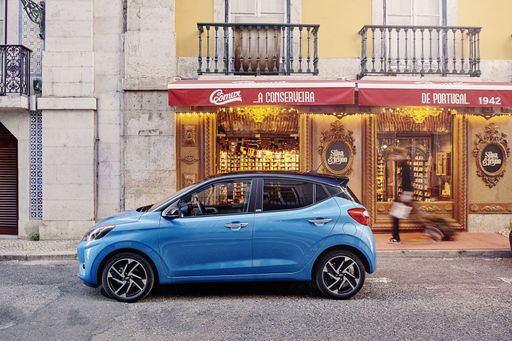
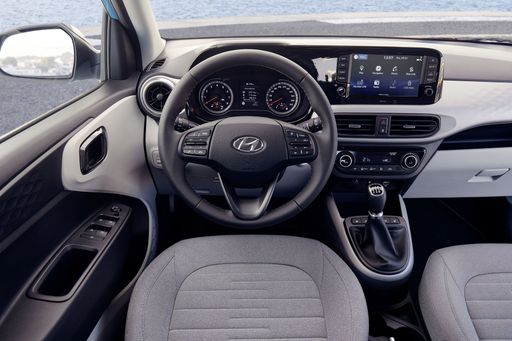
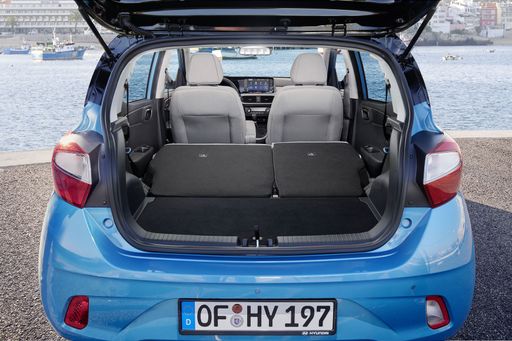
Costs and Consumption |
|
|---|---|
|
Price
39200 - 98600 £
|
Price
14600 - 19000 £
|
|
Consumption L/100km
4.9 - 10 L
|
Consumption L/100km
4.9 - 5.5 L
|
|
Consumption kWh/100km
-
|
Consumption kWh/100km
-
|
|
Electric Range
-
|
Electric Range
-
|
|
Battery Capacity
-
|
Battery Capacity
-
|
|
co2
129 - 226 g/km
|
co2
110 - 124 g/km
|
|
Fuel tank capacity
51 - 52 L
|
Fuel tank capacity
36 L
|
Dimensions and Body |
|
|---|---|
|
Body Type
Coupe
|
Body Type
Hatchback
|
|
Seats
4
|
Seats
4 - 5
|
|
Doors
2
|
Doors
5
|
|
Curb weight
1560 - 1830 kg
|
Curb weight
996 - 1099 kg
|
|
Trunk capacity
390 L
|
Trunk capacity
252 L
|
|
Length
4537 - 4548 mm
|
Length
3670 - 3675 mm
|
|
Width
1838 - 1887 mm
|
Width
1680 mm
|
|
Height
1390 - 1404 mm
|
Height
1480 - 1483 mm
|
|
Max trunk capacity
-
|
Max trunk capacity
1050 L
|
|
Payload
350 - 400 kg
|
Payload
344 - 423 kg
|
Engine and Performance |
|
|---|---|
|
Engine Type
Diesel MHEV, Petrol
|
Engine Type
Petrol
|
|
Transmission
Automatic, Manuel
|
Transmission
Manuel, Automatic
|
|
Transmission Detail
Automatic Gearbox, Manual Gearbox
|
Transmission Detail
Manual Gearbox, Automated Manual
|
|
Drive Type
Rear-Wheel Drive, All-Wheel Drive
|
Drive Type
Front-Wheel Drive
|
|
Power HP
156 - 530 HP
|
Power HP
63 - 90 HP
|
|
Acceleration 0-100km/h
3.8 - 8.7 s
|
Acceleration 0-100km/h
11.4 - 18.4 s
|
|
Max Speed
237 - 250 km/h
|
Max Speed
143 - 175 km/h
|
|
Torque
250 - 650 Nm
|
Torque
93 - 172 Nm
|
|
Number of Cylinders
4 - 6
|
Number of Cylinders
3 - 4
|
|
Power kW
115 - 390 kW
|
Power kW
46 - 66 kW
|
|
Engine capacity
1995 - 2998 cm3
|
Engine capacity
998 - 1197 cm3
|
General |
|
|---|---|
|
Model Year
2024 - 2025
|
Model Year
2024
|
|
CO2 Efficiency Class
D, E, G
|
CO2 Efficiency Class
C, D
|
|
Brand
BMW
|
Brand
Hyundai
|
What drivetrain options does the BMW 2 Series have?
Available configurations include Rear-Wheel Drive or All-Wheel Drive.
